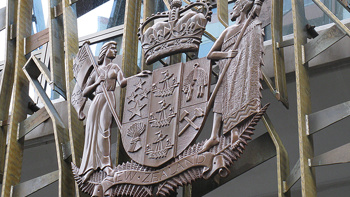
I'm 30 and separating from my partner of five years. So far, we have been able to agree on the details of the split ourselves. Is it true that our KiwiSavers need to be split between us? And how do you actually do this? I've chosen to contribute more to my KiwiSaver, whereas my partner is more of a spender, so I'm hoping she won't insist on taking some of mine. Also, I have put a small amount into shares; she probably doesn't even know about this. I'm thinking I won't mention it unless I'm breaking the law by keeping quiet?
Your KiwiSaver
The answers to your first and last questions are "yes" and "yes". I can say up front that hiding assets in a breakup is a bad idea. There is some room to move in dividing relationship property, but generally in a breakup the law requires equality.
To be clear on this - relationship property includes any contributions made to your KiwiSaver or other retirement plan during your relationship, and the growth from those contributions. This includes funds paid in by you, your employer and the government, and any retirement funds held in different countries.
That portion of your KiwiSaver fund which existed prior to your relationship is ring-fenced as your separate property and doesn't need to be divided when you separate. (This includes any growth on those balances.)
You can calculate the amounts yourselves when working out what is relationship property and separate property. If you don't agree, one or both of you can request independent valuations.
Usually, the date of separation is used to calculate the final value of your KiwiSaver account, although the date of your final relationship property settlement could be used, particularly if it has taken a long time to finalise the settlement.
There is a simpler solution here, which can see your KiwiSaver money left alone. It is usually easier for your partner to receive a greater amount of the other relationship property: in cash or it can be in chattels like furniture.
If you can't agree, then you can apply to the court to make a court order directing the manager of the KiwiSaver fund to pay out a portion of your funds. The court will specify whether the money is to be paid into your partner's KiwiSaver fund or into their bank account.
You can't personally request this from your KiwiSaver fund, even if you and your partner agree; it must be ordered by the court. This process of obtaining the order costs between $2000-$3000 if you and your partner agree, but will exceed this if you don't, and further negotiation or a court ruling is required. As you can see, this is not a great solution for most couples.
The court won't make an order impacting KiwiSaver if there is another option, like one partner taking a greater share of the other's relationship property. The impact of this is worth considering, if you are only 30. Your share of the assets from the split can be largely tied up in your retirement scheme, unable to be accessed for many years, while your partner can leave with negotiable cash, shares or other assets.
You mention your partner may not wish to split your two KiwiSaver accounts. That is not unusual. Many couples reach agreement about relationship property without needing to resort to exact points of law. Even if there is bad blood between the two of you, agreeing on financial details will alleviate stress and let both of you walk away, more quickly and with more to show for it.
Be aware that - your agreement will not be not legally binding unless each of you has received independent legal advice, and you have both signed and witnessed a relationship property agreement. Otherwise it is possible for your partner to make an unwelcome claim against you in the years following your separation.
Your shares
Don't hide them, or those gold coins sitting in a box at the bank. You are obligated to disclose all your assets when you separate. The comeuppance the deceitful husband receives in the movie The Other Woman also happens in real life.
A relationship property agreement always contains a clause stating the parties have made accurate and complete disclosure. It also says that if either party has failed to disclose, the other party will be entitled to take proceedings against them. If your partner suspects a secret bank account, or any assets stashed away, the court can be rigorous in finding them. Googling "hidden asset search" will tell you that this is a popular pastime, and there are people with probably more expertise at locating secret stashes than you have at hiding them. Shares are not hard to trace.
/arc-anglerfish-syd-prod-nzme.s3.amazonaws.com/public/OCPIYSJOWNAVNCFT2KXVC6AF6Q.jpg) It's never a good idea to hide your assets from your partner after a break up. Photo/123RF.
It's never a good idea to hide your assets from your partner after a break up. Photo/123RF.
If it is discovered later that you didn't disclose your shares, you will need to go through some of the settlement process again. You will be forced to re-negotiate with your partner and have a new relationship property agreement drawn up. That will incur further legal costs.
The good news is that any shares you purchased prior to the relationship will be considered separate property if you have kept them separate. If you have a wealth advisor, you could consult with them on your best options to resolve ownership.
My advice is to be honest about your assets when you separate. It will give you peace of mind that you have made a fair and complete break, as you begin your new life.
Keep your life simple by full disclosure and it will be better for you in the long term.
- Jeremy Sutton is a senior family lawyer, specialising in divorce cases where there are significant assets, including family trusts and complex business structures.
Take your Radio, Podcasts and Music with you









